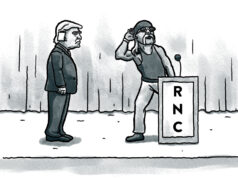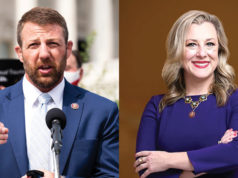Once again, another presidential election has occurred in which the candidate who earned the most popular votes failed to win a majority of electoral votes. This has, of course, spurred another round of calls for ending the Electoral College system. Generally, such calls are related to the perception that the Electoral College is “anti-democratic” in its operation. As of this writing, Hillary Clinton leads in the popular vote by slightly more than 2.5 million votes (a 1.9 percent difference); however, Donald Trump won the electoral vote 306-232. This apparent incongruity has many believing that the Electoral College is incompatible with democratic governance.
The essential nature of the Electoral College requires candidates to have an appeal beyond just major population centers. A presidential candidate must gain support from across the country to win the White House. In addition, the Electoral College was designed to help refine the selection of the president. The framers did not trust that voters would have enough information about the candidates to make an informed decision. They were concerned that partisans would back candidates with little experience or who were untrustworthy (sound familiar?), so they wanted a mechanism that, though tied to the people, was not entirely bound by their preferences. The Electoral College was to be a representative system in which the popular vote would have influence but not necessarily dictate the final decision.
That being said, the Electoral College has never functioned as it was intended. Rather than being a filter for the popular vote, the parties quickly seized it to fashion a rubber stamp of the popular vote in each state. Rather than eliminating the Electoral College to solve this problem, let me offer three ideas of improving it.
Eliminate partisan influence
First, it’s time to remove the Electoral College from the clutches of the parties. Given that 1) the political parties in each state select a slate of electors, and 2) the presidential candidate winning a plurality of votes in a state will have their party’s entire slate of electors selected (in all but Nebraska and Maine), this ensures that the electors are simply a reflection of each state’s party preferences. It also ensures that the electoral vote may not closely reflect the popular vote in a state.
This process should be changed so that people choose the electors directly rather than by the parties, preferably in nonpartisan elections. This could easily occur during the presidential primary elections in each state. Let the voters decide who will represent them in the Electoral College rather than the political parties. This should make the Electoral College vote more representatively of the people.
Free electors to vote their consciences, end winner-take-all
Second, electors should not be bound to vote in a certain way. Other than being required to consider only those candidates that received votes in their state, electors should be free to choose from any of those candidates. If the people choose the electors, electors should have the people’s trust to make such a decision. This would make the system much more consistent with the intent of the Framers.
It would also allow the electors the opportunity to deliberate with one another regarding this decision. Surely a decision over who will lead the most economically and militarily powerful nation on earth deserves some discussion and reflection once the heat of campaign ads and partisan rhetoric has subsided, and this proposal would provide that.
Finally, end the winner-take-all nature of the Electoral College. The Constitution does not require the system to work this way. If the previous two suggestions were followed, this idea would likely see the electoral vote become more reflective of the popular vote (though not always). In addition, the combination of these three suggestions could open the door to third parties having more presence in the presidential election.
Removing party control of the system, providing electors flexibility in their votes and ending the winner-take-all system would give us a presidential-election system that would not only adhere to our democratic principles but also our republican roots. Additionally, it could save us from further “Trump or Clinton” choices that so many voters couldn’t bear this election year.
Also important is that none of these improvements would require a constitutional amendment. They could all be accomplished via state laws.
Now is not the time to abandon the Electoral College. It’s time to breathe new life into this marvelous device.






















